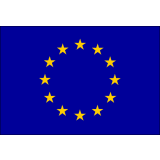
Other - European Union
About
In 1951, six countries (Belgium, France, Germany, Italy, Luxembourg and the Netherlands) founded the European Coal and Steel Community. In 1958, this became known as the European Economic Community (EEC), and its name was changed to the European Union in 1993.
Over the years, 22 more countries joined the original 6.
The EU currently has 27 member countries, and has 24 official languages.
Aims
The aims of the European Union within its borders are:
- promote peace, its values and the well-being of its citizens
- offer freedom, security and justice without internal borders, while also taking appropriate measures at its external borders to regulate asylum and immigration and prevent and combat crime
- establish an internal market
- achieve sustainable development based on balanced economic growth and price stability and a highly competitive market economy with full employment and social progress
- protect and improve the quality of the environment
- promote scientific and technological progress
- combat social exclusion and discrimination
- promote social justice and protection, equality between women and men, and protection of the rights of the child
- enhance economic, social and territorial cohesion and solidarity among EU countries
- respect its rich cultural and linguistic diversity
- establish an economic and monetary union whose currency is the euro
The aims of the EU within the wider world are:
- uphold and promote its values and interests
- contribute to peace and security and the sustainable development of the Earth
- contribute to solidarity and mutual respect among peoples, free and fair trade, eradication of poverty and the protection of human rights
- strict observance of international law
Values
- Human dignity
- Freedom
- Democracy
- Equality
- Rule of law
- Human rights
Similar organizations 



African Union Commission (AU)
4 open positions Government

Deutsche Gesellschaft für Internationale Zusammenarbeit (GIZ)
4 open positions Funding AgenciesDevelopment ConsultingService ProvidersGovernment

United States Department of State (DOS)
30 open positions Government
Company Offices
- Belgium (headquarters)
- Brussels
- Rue Belliard